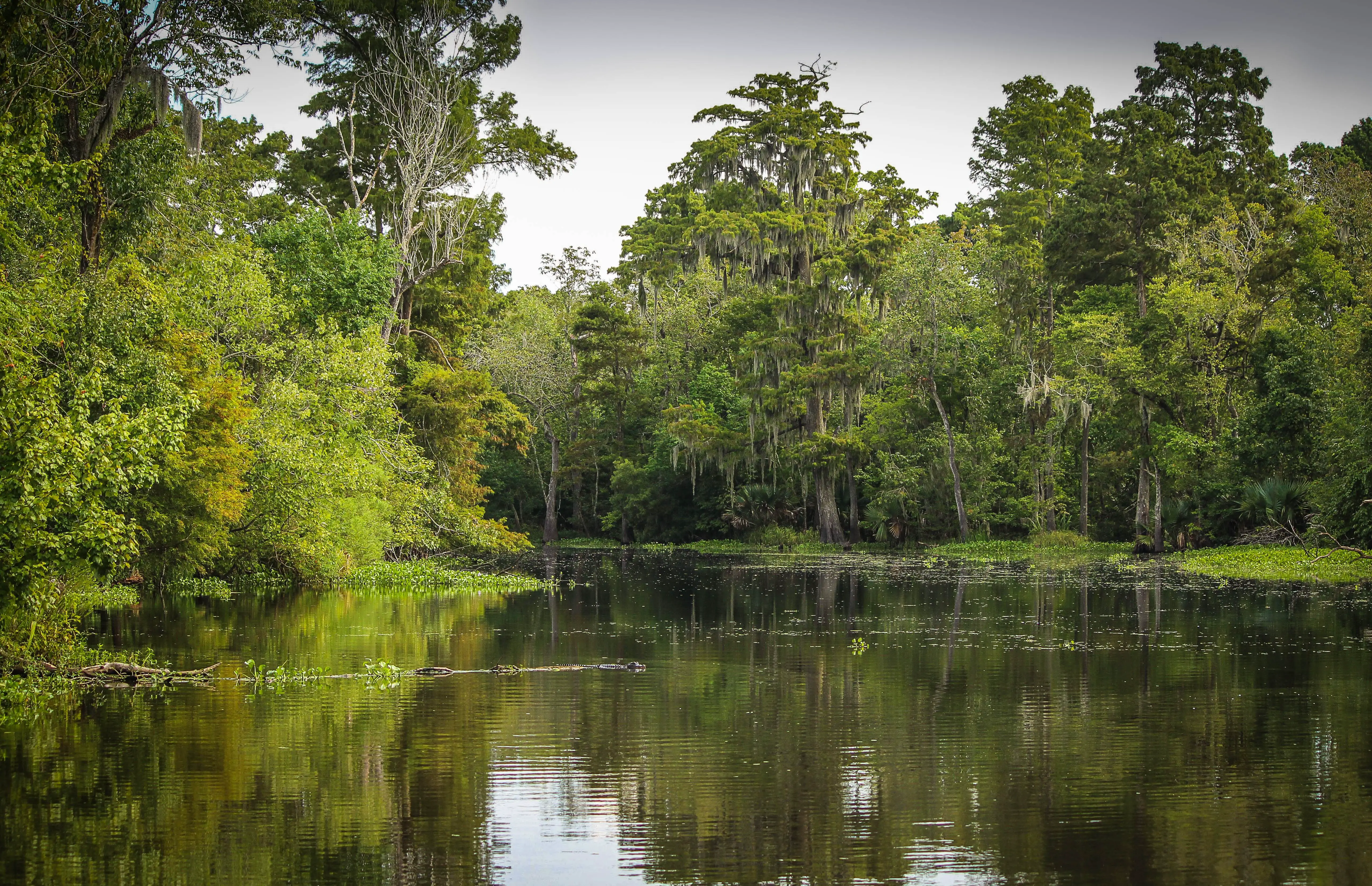
On Thursday, December 6th, Louisiana Judge Keith Comeaux of the 16th judicial district court ruled that Energy Transfer Partners (ETP, also known as Energy Transfer Equity,) had the right to seize privately held-land in order to continue construction of the controversial Bayou Bridge pipeline through the Atchafalaya Basin. The lawsuit was brought to court after three landowners, Theda Larson Wright, Peter K. Aaslestad, and Katherine Aaslestad alleged that EPT had trespassed on their land and cut down trees in order to begin building the pipeline through their land parcels, without their permission.
The Atchafalaya basin, apart from being home to thousands of native species of plants, animals, fungi and other living beings, is also an ancestral home to some of the native peoples of Louisiana, as well as one of the last places where crawfish are fished in the wild. Even to those who do not accept the swamp as intrinsically valuable, must recognize that it provides a home, as well as economic and environmental services to the people of Louisiana in the form of stormwater absorption, air and water purification, and crawfish harvests.
Although the Judge’s verdict acknowledged that ETP did indeed trespass on the privately-held land, the ruling states that ETP has the right to continue construction, and now has the right to construct on the disputed land.
Though couched in the lofty, Latinate language of the law, the ruling shows a clear bias towards the so-called “necessity” of fossil fuel and its supporting infrastructure. The ruling went so far as to equate the oil with a “public utility common carrier”. ETP is not a public utility, and the oil in the pipelines is not a publicly held good. In fact, it is neither publicly held nor objectively good for the community.
The verdict asserts, for instance, that “making Louisiana energy independent of foreign oil or tanker transportation of oil.” However, this statement falsely posits that fossil fuel is the only path to energy independence. It is not.
At times, the verdict seemed to actively disrespect the landowners, calling the testimony of an environmental advocate “self-serving”, and noting that “although all the defendants claim some mental anguish for this property, no party has sought medical attention and all the defendants are self-admitted advocates against pipelines”. The latter bit is a tautology—if the defendants are already opposed to the pipeline, then (the judge’s logic goes) they cannot have a legitimate reason to oppose the pipeline. The verdict did, however, quote both an employee of ETP and an expert from the LSU Center for Energy Studies (which has accepted large donations from various petrochemical and fossil fuel companies)
The landowners also argued that the “merchantable” value of the destroyed trees was $2854.05. Comeaux’s ruling states that “The Court agrees with Bayou Bridge [ETP] that the fair market value of the tract is zero due to the nonmarket-ability of the tract”. Never mind why it is “nonmarketable.”
So long as combustion reactions continue to emit carbon dioxide, fossil fuels will pose an enormous risk to Louisiana’s future. The Southeast is a region that has seen increases in the number of “danger days” where the temperature poses risks to human health. The rise in temperature also strengthens hurricanes and makes downpours heavier, and the warming of the ocean creates sea-level rise, which floods Louisiana’s shores. Doubling down on fossil fuel infrastructure, which is literally what is happening in St. Martin Parish today (as the pipeline is being built on top of another one), is exactly the opposite of what needs to happen to combat climate change.
ETP was ordered to pay each landowner $150 for their troubles. Last year, ETP/ Energy Transfer Equity, made a profit of 4 billion dollars.
In a statement to Big Easy, Cherri Foytlin, the founder of the L’eau Est La Vie protest Camp, said:
“From my perspective, it’s more of the same. Break the law—stomp on the fifth amendment—get a slap on the wrist via the good ole boys club. ETP trespasses and they get a $150 fine; it’s been proven that we did not trespass, and we are facing felony charges. That’s not justice, that’s state-sponsored larceny with a side of f*** you to land rights and personal freedoms.”
Jesse Lu Baum is a queer writer and cartoonist originally from Brooklyn, New York. Her writing has been featured in publications such as Medium.com, The Jewish Daily Forward, The Mid-City Messenger and Preservation in Print. Aside from writing, she has also worked as a non-profit home repair person, a theater bartender, and a research assistant. If you enjoyed this coverage, please check out her other article on L’eau Est La Vie, the group protesting The Bayou Bridge Pipeline.










xxxhdfire.com melissa moore riding big black cock.
Guess I won’t be moving to the Big Easy, anytime soon. Wouldn’t want to get charged with murder for shooting trespassers.